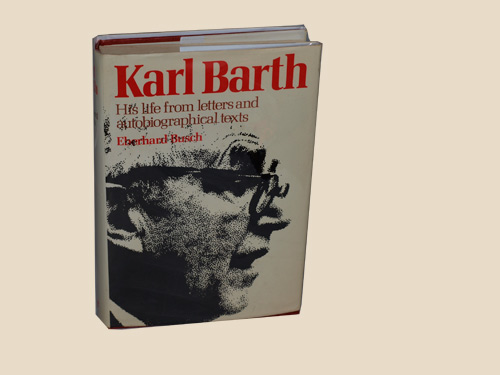 [Karl Barth] was indeed happy to be dubbed “orthodox” as long as that meant being a theologian who was open and ready to learn from the Fathers. But he rejected any restriction to the doctrinal position of any teacher, school or confession. He could not and would not approve of the confessionalism which had become topical:
[Karl Barth] was indeed happy to be dubbed “orthodox” as long as that meant being a theologian who was open and ready to learn from the Fathers. But he rejected any restriction to the doctrinal position of any teacher, school or confession. He could not and would not approve of the confessionalism which had become topical:
“Confessions exist for us to go through them (not once but continually), not for us to return to them, take up our abode in them, and conduct our further thinking from their standpoint and in bondage to them. The church never did well to attach itself arbitrarily to one man – whether his name was Thomas … or Luther, or Calvin – and in his school to attach itself to one form of doctrine. And it was never at any time good for it to look back instead of forwards as a matter of principle.”
Barth did not want even his own Dogmatics to be understood as fixing a new doctrinal standpoint. “I have never understood the whole Church Dogmatics as a house but as the introduction to a way which must be followed, as the description of the movement of something that can only be described in dynamic, not static, concepts. A house is a static object.”
(Busch, Karl Barth, 375.)